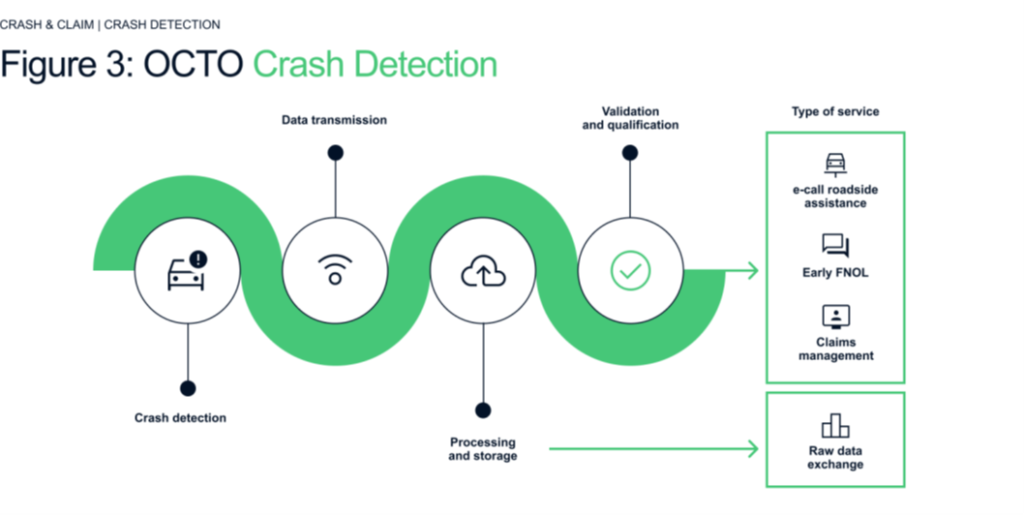Amidst heightened inflationary pressures, 32 percent of EU consumers saw their motor insurance price increase despite their risk situation not changing[1]. These price increases are a result of insurers being confronted with escalating costs across the claim’s spectrum. This cost growth is driven by several factors, including prolonged settlement durations due to disruptions in the supply chain and increased expenses for spare parts and the higher cost of labour. Against the backdrop of increasing customer expectations, this presents a formidable challenge, as policyholders perceive the claims process as a critical “moment of truth” and a pivotal touchpoint in their policy journey.
OCTO’s claims management solutions epitomises an integrated digital strategy, grounded in a vast repository of telematic data of more than 525 thousand certified crashes, amassed over two decades. This data collected via onboard devices or smartphones, serve as the cornerstone for training proprietary AI algorithms, which expedite claims processing, prevent insurance fraud, evaluate damages, and optimise settlement procedures.
With OCTO’s AI, accident scenes are accurately reconstructed, allowing for fast damage estimations following early First Notification of Loss (FNOL) and assisting drivers at the scene through specialised operators of OCTO partner ecosystem. Furthermore, policyholders can submit video footage through their smartphones, aiding the algorithm in identifying damages and calculating repair costs, also empowering claim adjusters with relevant information for more efficient claims handling. In addition, the OCTO Fraud Shield algorithm provides a higher probability of detecting fraudulent activity, assisting and accelerating fraud investigations.
OCTO utilises its technology and knowledge to offer insurers trusted evidence in the form of official documentation and expert consultations. This combats fraud and resolves legal disputes, in compliance with relevant local laws such as the Italian Private Insurance Code, which recognises telematics data as foolproof in accident cases. The streamlined process (figure 3) of OCTO crash detections enhances claims management efficiency and mitigates fraud risks, with an average improvement of more than 25 percent, depending on the level of adoption.

[1] EIOPA – Impact of inflation on the insurance sector